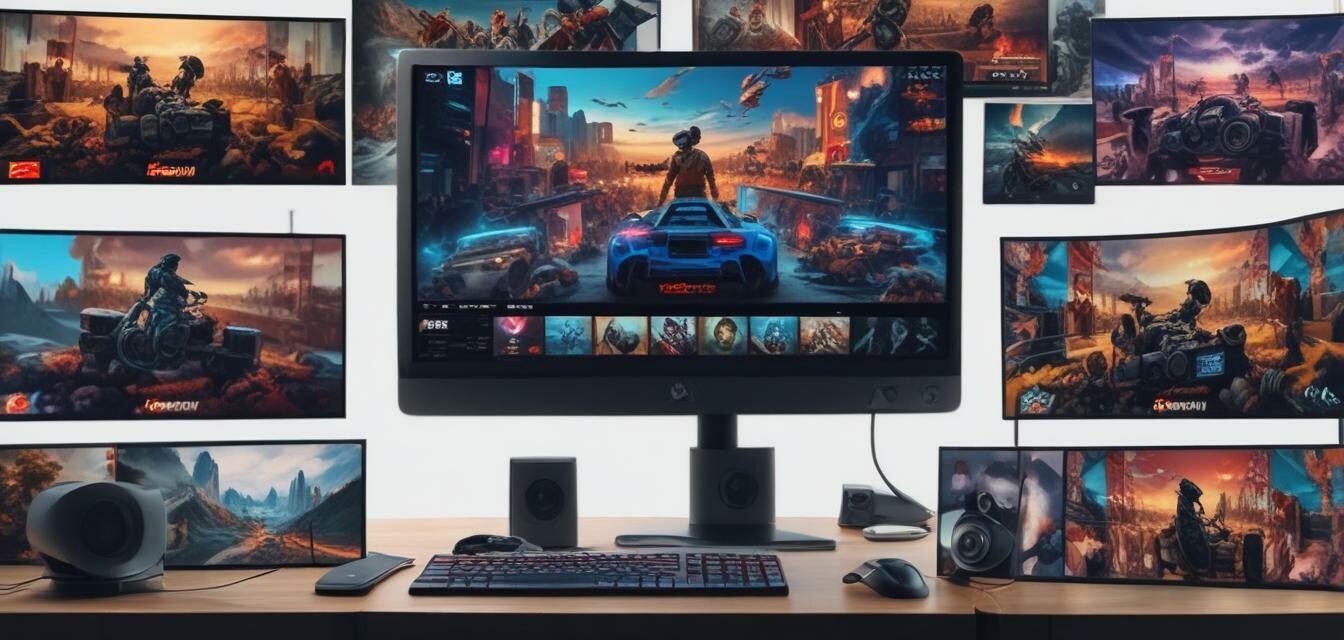
Choosing a Webcam for Gaming: What You Need to Know
Key Takeaways
- Look for webcams with high resolution (1080p or more) for clarity.
- Prioritize frame rates; 30fps is standard, but 60fps is ideal for smooth video.
- Ensure compatibility with your gaming console or PC.
- Consider features such as autofocus, low-light performance, and microphone quality.
- Stay within your budget while selecting the best webcam that meets your needs.
Choosing the right webcam for gaming can significantly enhance your streaming experience and interaction with your audience. Whether you’re a casual gamer or an aspiring professional streamer, investing in the right equipment is essential. In this guide, we’ll dive into the crucial aspects you need to consider to find the perfect gaming webcam.
Understanding your needs
Before diving into the specifications, it’s essential to understand your specific gaming needs. Are you focusing on streaming live gameplay, video conferencing, or creating content? Let’s break down the core factors:
| Factor | Description |
|---|---|
| Streaming | If you're streaming gameplay, focus on clarity and frame rates. |
| Conferencing | Look for easy setup and good audio quality. |
| Content Creation | Consider advanced features like background blur and lighting adjustments. |
Essential features to consider
1. Resolution
The resolution of a webcam affects video quality significantly. Here’s a comparison of common webcam resolutions:
| Resolution | Pixel Count | Best Used For |
|---|---|---|
| 720p | 1 MP | Basic streaming and video calls |
| 1080p | 2 MP | Gaming and high definition streaming |
| 4K | 8 MP | Professional-grade streaming |
2. Frame Rate
Frame rate, measured in frames per second (fps), dictates the smoothness of motion in your video. Here’s what you need to know:
- 30fps: Standard for most applications, but may not suffice for fast-paced gaming.
- 60fps: Ideal for a smoother experience, especially during high-action gaming.
3. Latency
Low latency is crucial for gamers to ensure that there is minimal delay between your movements and what viewers see. Here are some tips:
- Research webcams known for low latency.
- Check reviews from fellow gamers for real-world performance insights.
4. Compatibility
Ensure that the webcam you choose is compatible with your gaming setup, whether you’re using a PC or a console. Compatibility factors to consider include:
- Operating systems (Windows, macOS, Linux)
- Gaming consoles (PlayStation, Xbox, Nintendo)
Microphone quality
Audio quality is just as important as video quality. Many webcams come with built-in microphones, but their quality can vary significantly. Here’s what you should look for:
- Noise cancellation features for a clearer audio experience.
- External microphone compatibility if you wish for enhanced audio quality.
Budget considerations
While it’s tempting to choose the cheapest option available, a good webcam is an investment. Here are some budget categories to consider:
| Budget Range | Typical Features |
|---|---|
| Under $50 | Basic resolution, limited features |
| $50 - $100 | 1080p resolution, decent audio |
| Above $100 | 4K resolution, enhanced features, better compatibility |
Where to buy your webcam
When you’ve narrowed down your options, it’s essential to choose a reliable retailer. Check out these internal links for more guidance:
Conclusion
Selecting the right webcam for gaming doesn't have to be overwhelming. Focus on resolution, frame rates, compatibility, and budget to make an informed decision. With the right webcam, you can enhance your gaming experience and engage your audience effectively.
Tips for beginners
- Start with your needs: What will you primarily use the webcam for?
- Experiment with different resolutions and settings to see what works best.
- Read reviews and watch setup guides online to gain insights.